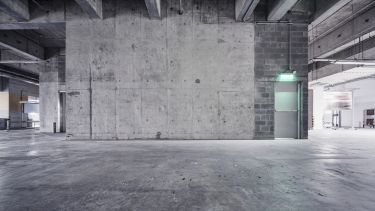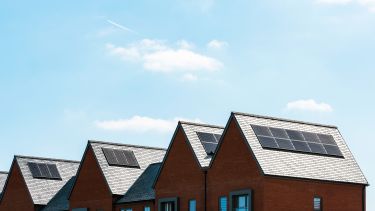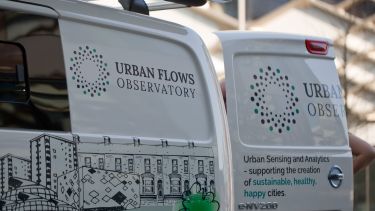Decarbonising cities
Decarbonising cities is fundamental to achieving net zero goals by 2050. Researchers at the University of Sheffield are using their expertise to find solutions that will ensure a sustainable energy future for city regions around the world.

Cities occupy only two percent of the world's landmass but they leave a huge carbon footprint. From powering homes and businesses to transport infrastructure and the built environment - our cities consume over two-thirds of the world’s energy and account for more than 70% of CO2 emissions.
Our researchers are using their expertise to find solutions that will ensure a sustainable energy future for city regions around the world.
Powering our cities

How does a city region function in a sustainable, net-zero carbon future?
Our researchers are investigating the full energy system of a city, from how it is powered to its energy security and infrastructure.
Our projects examine the flow of energy resources in cities as well as clean energy processes, energy storage and transport. From regenerative cities, urban ecology to smart cities - our researchers cover the full energy spectrum.
Energy efficient built environments

How can we build more sustainable cities?
Researchers from the Energy Institute are investigating net-zero solutions that will help to create more sustainable built environments.
We examine sustainable building design, energy performance, occupancy feedback and the development of more sustainable construction materials. Our innovative research projects are developing practical solutions for more energy-efficient cities.
PhD research

Using alkali-activated materials to develop sustainable construction materials
Researchers are investigating how we can replace carbon-heavy traditional cement with cement made from alkali-activated materials, creating a sustainable alternative for a vital part of a city’s construction infrastructure.

Peer-to-peer energy trading between households could support an electrified future
Our research is looking into ways in which electricity can be traded between households in ‘microgrid’ communities to save money and resources.

Ensuring resilience in UK housing performance
Researchers are examining how nearly zero energy housing can be improved to become more robust, adaptable and resilient to physical and social changes.




